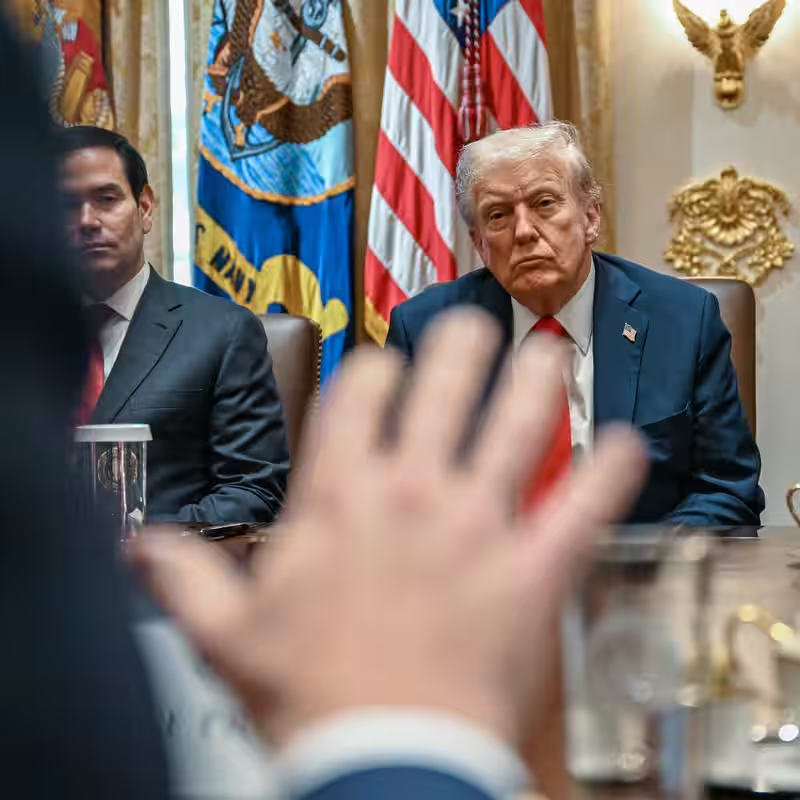Table of Contents
- Trump Threatens Xi Summit Cancellation
- Why Rare Earth Minerals Matter
- China’s New Export Controls Explained
- Potential U.S. Tariff Retaliation
- Who Gets Hurt in a Trade War?
- Market and Geopolitical Implications
- Sources
Trump Threatens Xi Summit Cancellation
President Donald Trump has escalated U.S.-China tensions by threatening to cancel his upcoming meeting with Chinese leader Xi Jinping—and impose sweeping new tariffs—in response to Beijing’s latest restrictions on rare earth mineral exports.
Writing on Truth Social, Trump accused China of trying to “hold the World ‘captive’” through its control of critical materials essential for everything from electric vehicles to missile guidance systems. “There is no way that China should be allowed to do this,” he said, calling the move a direct threat to U.S. economic and national security.
Why Rare Earth Minerals Matter
Rare earth minerals aren’t actually rare—but they are difficult and environmentally intensive to refine. These 17 elements are vital for high-tech manufacturing:
- Neodymium: Used in powerful magnets for EV motors and wind turbines.
- Dysprosium: Enhances heat resistance in defense electronics.
- Terbium & Europium: Critical for LED displays and medical imaging.
China controls roughly 60–70% of global rare earth mining and over 85% of refining capacity. This near-monopoly gives Beijing immense leverage in any tech or trade conflict.
China’s New Export Controls Explained
Effective December 1, 2025, China’s updated regulations require foreign companies to obtain government licenses to:
- Export products containing rare earth elements.
- Use Chinese-developed rare earth refining or battery manufacturing technology anywhere in the world.
Analysts say this goes beyond traditional export bans—it’s an attempt to regulate global supply chains directly. Companies like Nvidia, Apple, Tesla, and Lockheed Martin could face delays, higher costs, or even production halts if denied licenses.
Potential U.S. Tariff Retaliation
Trump signaled that “a massive increase of tariffs on Chinese products” is under active consideration. While details remain scarce, past actions suggest possible targets:
- Consumer electronics
- Electric vehicle components
- Steel and aluminum products
- Pharmaceutical ingredients
The president also hinted at “many other countermeasures,” which could include sanctions on Chinese tech firms or accelerated U.S. investment in domestic rare earth processing.
Who Gets Hurt in a Trade War?
While framed as a strategic standoff, the fallout would ripple through everyday life:
| Sector | Potential Impact |
|---|---|
| Automakers | Higher EV costs; delayed production due to magnet shortages |
| Defense Contractors | Disrupted supply of guidance systems and radar tech |
| Consumer Tech | More expensive smartphones, laptops, and headphones |
| Renewable Energy | Slower wind turbine deployment; higher green energy costs |
Market and Geopolitical Implications
Investors are already on edge. The threat of renewed U.S.-China trade conflict comes amid a fragile global recovery and record-high U.S. stock valuations. A full-blown tariff war could trigger volatility in tech and manufacturing sectors—especially those reliant on just-in-time supply chains.
Geopolitically, the move underscores a deepening decoupling between the world’s two largest economies. Both nations are racing to secure alternative sources: the U.S. is investing in mines in Australia and Texas, while China tightens its grip on processing infrastructure worldwide.
As one trade analyst put it: “This isn’t just about minerals—it’s about who controls the future of technology.”
Sources
Trump Threatens to Cancel Meeting with China’s Xi and Impose New Tariffs – The New York Times




